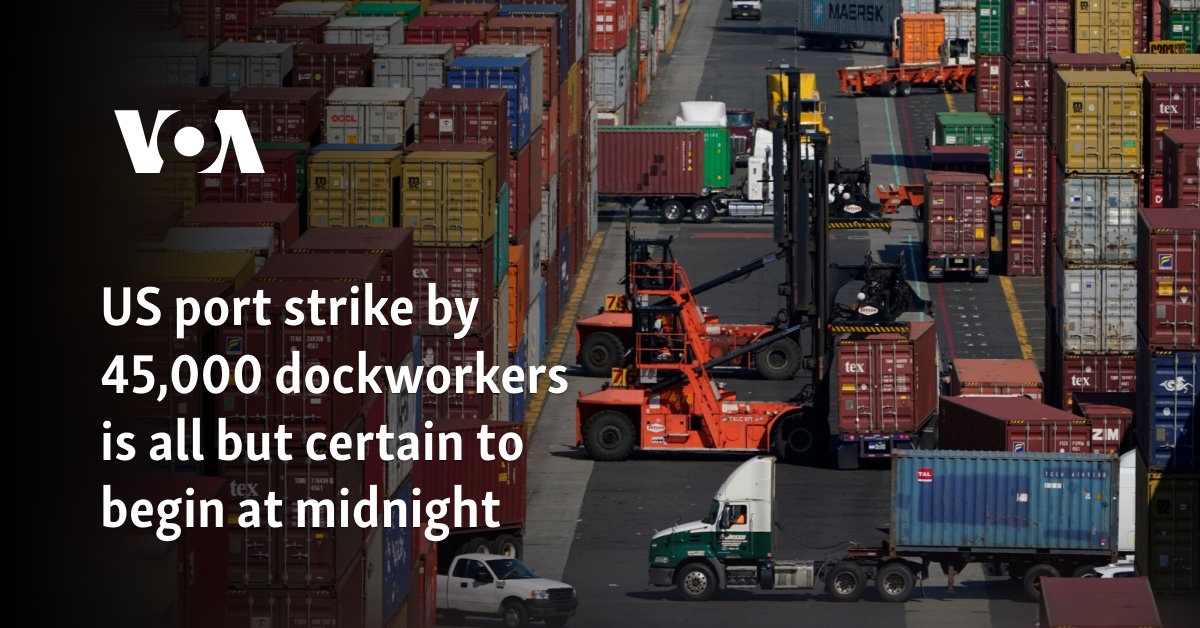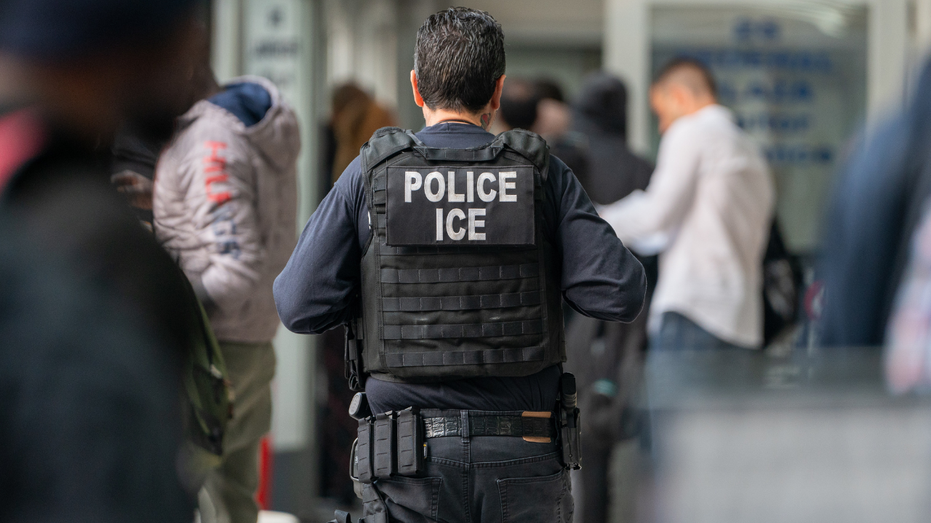
This article was originally published on VOA News - America. You can read the original article HERE

The union representing U.S. dockworkers has signaled that 45,000 of its members will walk off the job at midnight, kicking off a strike likely to shut down ports across the East and Gulf coasts.
The coming work stoppage threatens to significantly snarl the nation's supply chain, potentially leading to higher prices and delays in goods reaching households and businesses if it drags on for weeks. That's because the strike by members of the International Longshoremen's Association could cause 36 ports — which handle roughly half of the goods shipped into and out of the U.S. — to shutter operations.
ILA confirmed over the weekend that its members would hit the picket lines at 12:01 a.m. Tuesday. In a Monday update, the union blamed the United States Maritime Alliance, which represents the ports, for continuing to “to block the path” toward an agreement before the contract deadline.
“The Ocean Carriers represented by USMX want to enjoy rich billion-dollar profits that they are making in 2024, while they offer ILA Longshore Workers an unacceptable wage package that we reject," ILA said in a prepared statement. “ILA longshore workers deserve to be compensated for the important work they do keeping American commerce moving and growing."
ILA also accused the shippers of “gouging their customers" with sizeable price increases for containers over recent weeks. The union said that this will result in increased costs for American consumers.
The Associated Press reached out to a USMX spokesperson for comment.
If drawn out, the strike would force businesses to pay shippers for delays and cause some goods to arrive late for peak holiday shopping season — potentially impacting delivery of anything from toys or artificial Christmas trees, to cars, coffee and fruit.
A strike could have an almost immediate impact on supplies of perishable imports like bananas, for example. The ports that could be affected by the strike handle 3.8 million metric tons of bananas each year, or 75% of the nation’s supply, according to the American Farm Bureau Federation.
Americans could also face higher prices as retailers feel the supply squeeze.
“If the strikes go ahead, they will cause enormous delays across the supply chain, a ripple effect which will no doubt roll into 2025 and cause chaos across the industry," noted Jay Dhokia, founder of supply chain management and logistics firm Pro3PL.
Dhokia added that East Coast ports aren't the only ones at risk for disruption, as concern leading up to the strike has already diverted many shipments out West, adding to route congestion and more pressure on demand. Impacts will also be felt internationally — particularly in places like the United Kingdom, he said, where the U.S. is its largest trading partner.
ILA members are demanding higher wages and a total ban on the automation of cranes, gates and container-moving trucks used in the loading or unloading of freight.
The coming strike by the ILA workers — set to impact ports from Maine to Texas — will be the first by the union since 1977. West Coast dockworkers belong to a different union and aren’t involved in the strike.
If a strike were deemed a danger to U.S. economic health, President Joe Biden could, under the 1947 Taft-Hartley Act, seek a court order for an 80-day cooling-off period. That would suspend the strike.
All eyes are on what, if any, action the administration might take — particularly just weeks ahead of a tight presidential election. But Biden has signaled that he will not exercise this power.
During an exchange with reporters on Sunday, Biden said “no” when asked if he planned to intervene in the potential work stoppage.
“Because it’s collective bargaining, I don’t believe in Taft-Hartley,” he said.
At a briefing Monday, White House press secretary Karine Jean-Pierre reiterated that the administration had never invoked Taft-Hartley “to break a strike and are not considering doing so now." She added that top officials were still urging both parties to return to the bargaining table and negotiate in good faith.
This article was originally published by VOA News - America. We only curate news from sources that align with the core values of our intended conservative audience. If you like the news you read here we encourage you to utilize the original sources for even more great news and opinions you can trust!










Comments